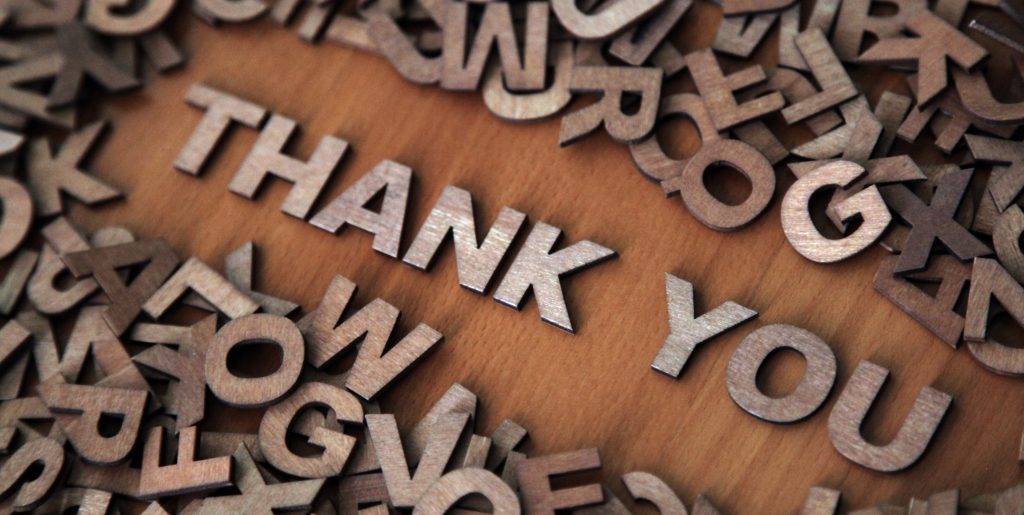If cover letters are about first impressions, then thank you letters can be described as last impressions. A well worded note to an employer to thank them for the opportunity to interview and reaffirm your interest in the job can be an effective way of reminding the employer of your candidacy just at that moment when they are preparing to make a decision.
Why send a thank you letter?
Besides obvious good manners, thank you letters are a common practice and are expected by employers. You don’t want to be the one candidate who did not send a thank you letter.
Most importantly, though, such letters are useful to confirm your interest in the position and to remind employers the reasons you are a strong candidate.
When is best to send a thank-you letters?
The sooner you send your thank you letters, the better — preferably within 24 hours. If, however, this is not possible, send it whenever you can, even if it is long after. Better late than never.
In those rare occasions when you leave an interview already knowing that you will not be hired, a good letter can still be useful. A brief note which thanks the interviewer for their time could be a reminder that you are still a strong candidate to be considered for future openings, or in case the person that they have hired does not work out.
To whom should thank you letters be sent?
Most commonly, thank you letters are sent by a candidate directly to the interviewer. There are, however, many other opportunities to send thank you letters, including thanking a person for referral to a job, or for an introduction to a network contact, an information interview, an internship, a reference, or time spent to help you promote your career.
If you were interviewed by more than one person, make sure to send the letter to each interviewer separately. You don’t need to write a totally different letter to each person, but personalize each as much as you can.
How should you write and send a thank you letter?
To start, make sure you have the correct spelling, email and address of your interviewer. To do this, pick up business cards from your interviewers once the interview is over.
Some tips for writing a good thank you letter:
- Use the same font and format of your cover letter, which means the letter should be typed on a Word document, and attached to an email. In most cases, a hand written card is considered too casual. If an attached document feels too formal, send an email.
- Write a simple, clear and short letter (3-4 paragraphs will do).
- You can include in the letter:
- An expression of gratitude for the opportunity to be interviewed
- A mention of something you enjoyed/learned in the interview (e.g. something you didn’t know about the company or position)
- A brief summary of the reasons you believe you are a strong candidate for this position
- A reminder of your enthusiasm for the job
- Letters can be dropped off or attached to an email. It is preferable not to use traditional mail, as it will take too long to arrive on the employer’s desk. Faxes are not a good idea, as they appear untidy and are more likely to get lost.
Use a tone which matches that of the employers. For example, a creative job would allow for a more relaxed tone, whereas a banking job might require a more serious and formal approach. Samples of letters can be found here.
To sum up, an effective thank you letter should:
- Be written and sent to anyone who offered time and resources to help your job search
- Be sent as soon as possible after the meeting or interview (same day, if possible)
- Written in a professional manner
- Be brief and error free
- Convey enthusiasm for, and interest in the position
- Be emailed or dropped off
After interviewing a number of candidates, an undecided employer who receives a well written, enthusiastic and professional thank you letter soon after the interview might just have an easier time making that critical final decision about which candidate to hire.

Nick Kossovan says
Having hired 100’s throughout my career, and continuing to do, I never was swayed or impressed by a candidate sending me a “Thank you” letter. Personally, I don’t see the point. You either are a great candidate or your not, as well it has an appearance of groveling. What you should be writing about is the lack of manner employers show job seekers. For the most part employer shave made interviews mindnumbing painful and the hiring process much more lengthy than it should be. Don’t get me started on employers not getting back to you with their hiring decision or interviewers on power trips.
Karin Lewis says
Thank you for this. That is a very interesting perspective. I have heard from employers who do complain when they don’t get a thank you note from a particular candidate. The truth is that there are as many perspectives on what works or doesn’t work for job seekers as they are employers.
As for the behaviour of employers toward job seekers, I have to agree that candidates don’t always get treated as well as they should. Potential candidates are often ignored and employers’ promises of follow-ups are often not followed through. It can be very hard not to take that kind of treatment personally. Maybe that is something we should write about. Thank you for that.